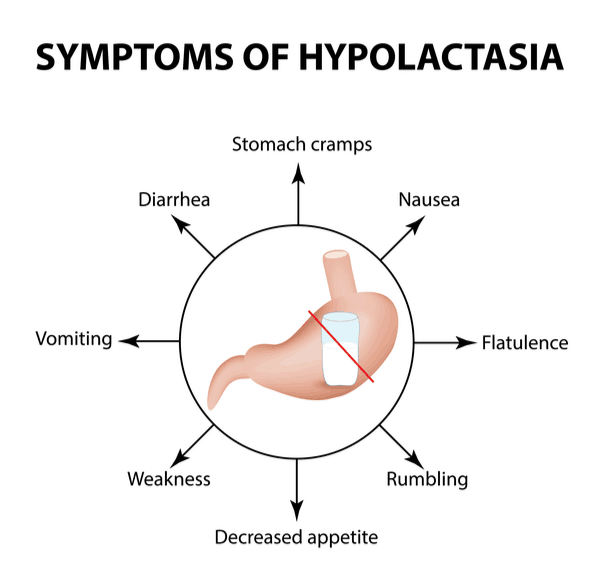Dealing With Lactose Intolerance
When people experience frequent bouts of flatulence, abdominal bloating, cramps, and diarrhea, it’s disconcerting and sometimes unpredictable. Your gastroenterologist may review your symptoms and do some in-office testing to determine if you have lactose intolerance. It’s a common GI condition in which the body produces the lactase enzyme in insufficient amounts. Fortunately, the teens and adults who develop it can manage the symptoms and feel good.

The details on lactose intolerance
The digestive enzyme, lactase, is produced in the small intestine. When it encounters lactose, the carbohydrate in dairy products such as milk and ice cream, it breaks down the sugar into a highly usable form. If, however, lactase is insufficient, the milk sugars will cause those uncomfortable GI symptoms within a half an hour or so.
While cheese and yogurt also are dairy products, they go through a fermentation process which limits their lactose content. As such, people who are lactose intolerant can consume these dairy items comfortably, says Genetics Home Reference.
Besides happening in young adulthood, lactose intolerance seems to run in families, particularly if as infants, individuals appeared unable to digest breast milk or formula properly. Additionally, some research shows this gastrointestinal problem may occur after an abdominal injury, reports John Hopkins Medicine.

Diagnosing and managing lactose intolerance
Your gastroenterologist will review your symptoms, their severity, and timing. Also, he or she may run a lactose intolerance test in which you consume a liquid with high levels of lactose. Through the course of two hours, the doctor measures your blood sugar levels. High readings indicate lactose intolerance.
In addition, a hydrogen breath test pinpoints lactose intolerance. For babies and young children, a stool acidity test uncovers this common GI disorder.
To manage lactose intolerance, your doctor will recommend some diet modifications, such as eliminating as much dairy as possible. Checking food labels for dairy content helps, as well as switching to almond or soy milk and taking supplements such as Lactaid which boost lactase levels in the gut.
See your gastroenterologist
Your GI doctor wants you to have a healthy digestion and a varied diet. Be sure to see him or her right away if you experience symptoms of lactose intolerance so you can feel your very best.



